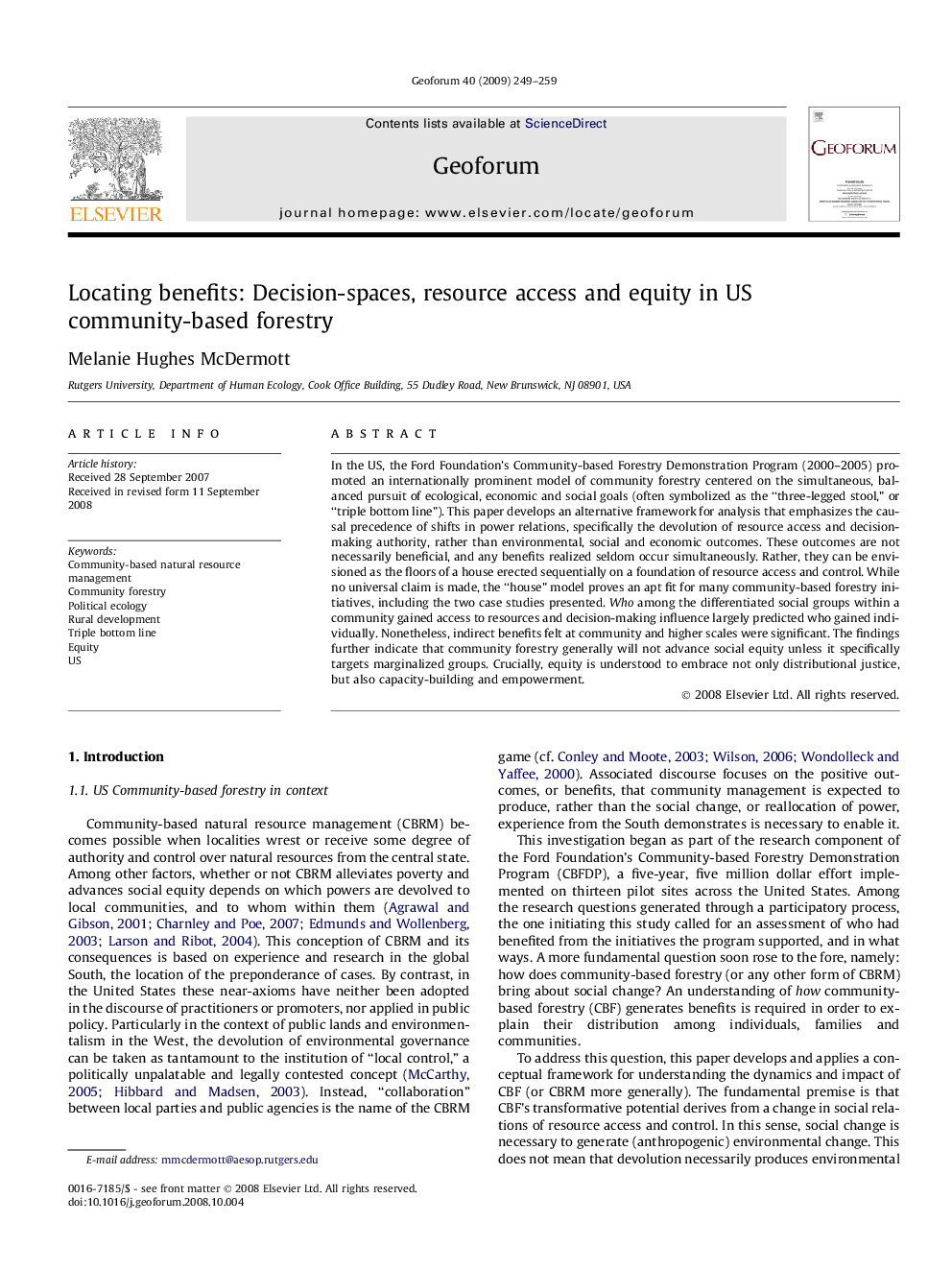| Article ID | Journal | Published Year | Pages | File Type |
|---|---|---|---|---|
| 5074732 | Geoforum | 2009 | 11 Pages |
Abstract
In the US, the Ford Foundation's Community-based Forestry Demonstration Program (2000-2005) promoted an internationally prominent model of community forestry centered on the simultaneous, balanced pursuit of ecological, economic and social goals (often symbolized as the “three-legged stool,” or “triple bottom line”). This paper develops an alternative framework for analysis that emphasizes the causal precedence of shifts in power relations, specifically the devolution of resource access and decision-making authority, rather than environmental, social and economic outcomes. These outcomes are not necessarily beneficial, and any benefits realized seldom occur simultaneously. Rather, they can be envisioned as the floors of a house erected sequentially on a foundation of resource access and control. While no universal claim is made, the “house” model proves an apt fit for many community-based forestry initiatives, including the two case studies presented. Who among the differentiated social groups within a community gained access to resources and decision-making influence largely predicted who gained individually. Nonetheless, indirect benefits felt at community and higher scales were significant. The findings further indicate that community forestry generally will not advance social equity unless it specifically targets marginalized groups. Crucially, equity is understood to embrace not only distributional justice, but also capacity-building and empowerment.
Keywords
Related Topics
Social Sciences and Humanities
Economics, Econometrics and Finance
Economics and Econometrics
Authors
Melanie Hughes McDermott,
